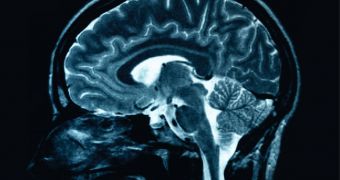Our complex brains are meant to make us understand our world, from quantum physics to the enigmas of the universe. But can our brain understand itself?
Researchers are trying to discover the way mind gives rise to thoughts, actions, emotions and ultimately consciousness in a network formed by billions of neurons, each one with thousands of connections. Decoding the complex machine could come with a huge payoff.
"If we understand the brain, we will understand both its capacities and its limits for thought, emotions, reasoning, love and every other aspect of human life," said Norman Weinberger, a neuroscientist at the University of California, Irvine.
"The human brain is the most complex object in the known universe ... complexity makes simple models impractical and accurate models impossible to comprehend," said Scott Huettel of the Center for Cognitive Neuroscience at Duke University The main issue is that scientists can't go out of their own brains (and knowledge) when investigating the brain itself.
"A more pernicious factor is that we all think we understand the brain-at least our own-through our experiences. But our own subjective experience is a very poor guide to how the brain works," Huettel told LiveScience.
"Whether the human brain can understand itself is one of the oldest philosophical questions," said Anders Garm of the University of Copenhagen, Denmark, a biologist who investigates jellyfish as models for human neural processing of visual information.
An objective look at the human brain are the novel brain-imaging techniques, like functional magnetic resonance imaging (fMRI) that permitted researchers to see the brain in action and observe how groups of neurons act. They detected neuronal hubs in the brain linked to certain tasks, like fleeing a dangerous situation, processing visual signals, dreaming and storing memories. But the mechanics of neuronal network collaboration is still a mystery.
"We do not yet have a good way to study how groups of neurons form functional networks when we learn, remember, or do anything else, including seeing, hearing moving, loving," said Weinberger.
Moreover, groups of neurons determine more complex behaviors and emotions, like altruism, sadness, empathy and anger. "Although understanding the function of this brain region may not necessarily identify what drives people like Mother Teresa, it may give clues to the origins of important social behaviors like altruism." said Huettel.
But the idea of consciousness gives most headaches amongst the researchers.
For example, when looking at a landscape, you are aware of it and your mind receives information about colors and shapes. But the visual impression can trigger emotions and thoughts. This personal awareness and perception is consciousness. Many researchers believe that this is what makes the difference between humans and animals. Humans are aware of the thinking process and they know that they know... In the end, what goal does awareness have?
"Understanding the brain will enable us to understand what it truly is to be human." added Weinnberger.

 14 DAY TRIAL //
14 DAY TRIAL //